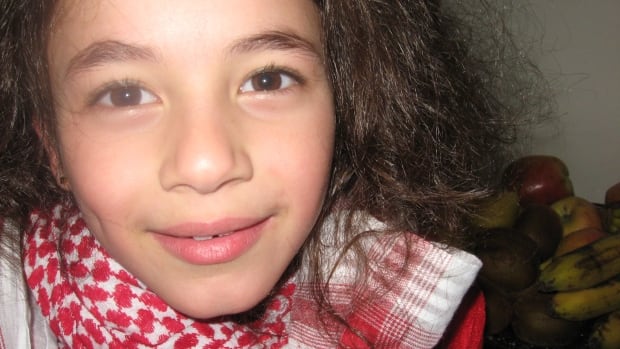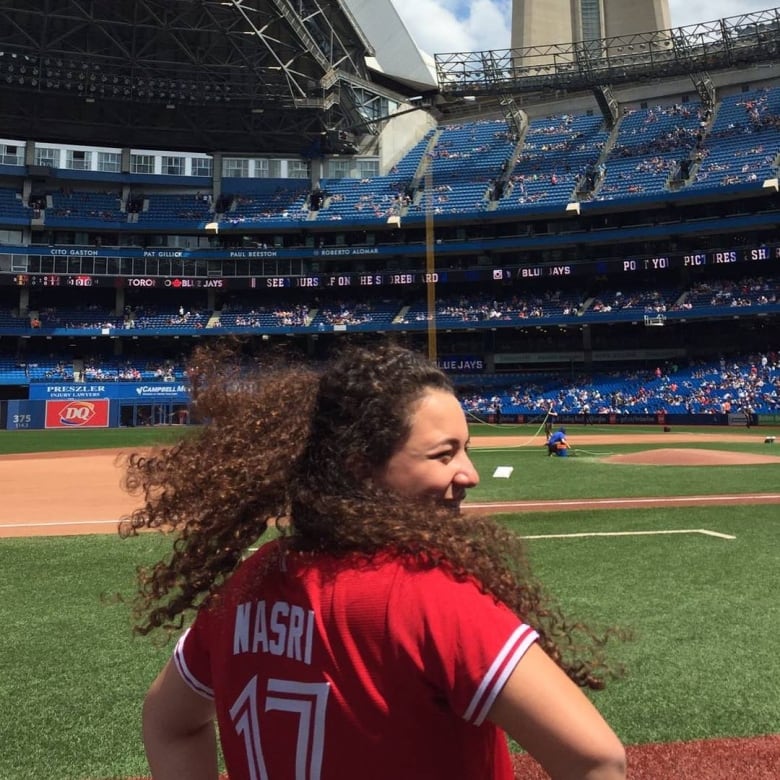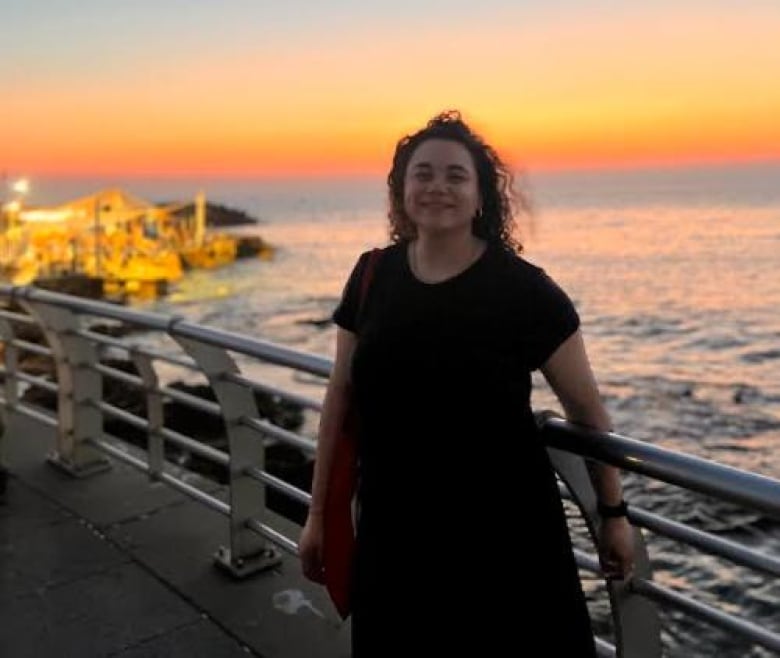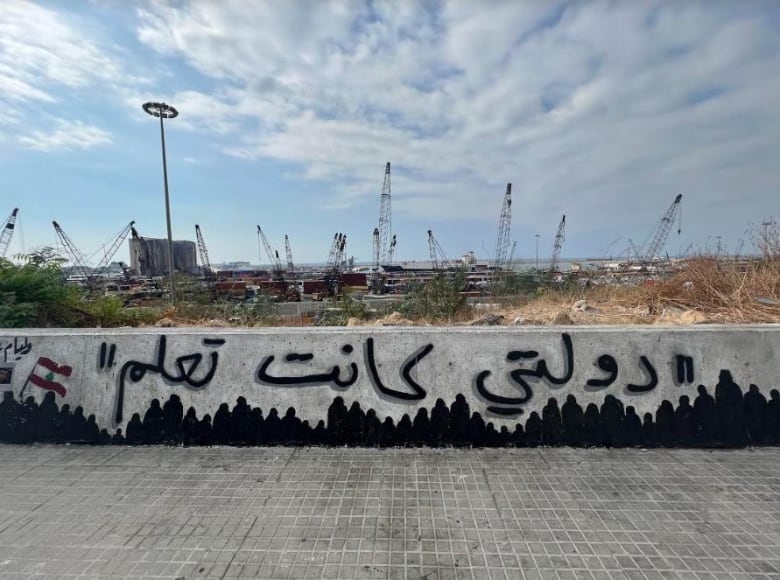
This First Person article is the experience of Pauline Nasri, a Syrian-Armenian-Canadian journalist living in Toronto. For more information about CBC’s First Person stories, please see the FAQ.
It’s my turn at the passport control and I hand over my Canadian passport to the agent. He asks me about my origin.
“What do you mean? I am Canadian.”
But he presses further, noting my family name is Nasri, and asks where my father was originally from. I say, anxiously, “Syrian.”
I’m worried he might peg me as one of the 1.5 million Syrian refugees who fled to Lebanon to escape civil war and are now unwanted in this country. But he seems satisfied and stamps my Canadian passport. As I walk out of the Beirut Rafic Hariri International Airport, the doors open and I smell the familiar whoosh of hot, humid air in June.
I carry Beirut in my heart all the time, and I can write poetry about this vibrant city. Strolling past the cosmopolitan mix of old and new buildings, you’d see unflappable people who choose to live their lives fully. But there’s also this other Beirut — beggars, mainly Syrian refugees, on the streets trying to sell you flowers or polish your shoes. The electricity doesn’t last in most neighbourhoods for more than two hours daily as there are rotating power cuts across Lebanon. People can barely afford food, medications or other basic needs.
Almost a decade ago, my family was one of those refugees. I was 13 years old when we first crossed the border into Lebanon. At that time, entering the country wasn’t as difficult as was getting permanent residency.
Officially, the country’s policy has been to host the refugees until the civil war in Syria has ended. In reality, the Lebanese government has done little to ease the difficulty of life for refugees. It hosts the largest number of refugees per capita and per square kilometre in the world, between the recent arrival of 1.5 million Syrian refugees and nearly 14,000 of other nationalities. Between the pandemic, the collapse of the Lebanese economy and the overwhelming number of refugees, the resentment against the Syrian population was rising.
As a Syrian refugee, my life in Beirut was never stable. Getting permanent residency was expensive and not guaranteed for refugees. My father didn’t have a work permit. Schools were costly and hard to get in. Thankfully, my parents were somehow able to pay my tuition fees and I continued my education.
Despite these challenges, my friends back in Syria often made me feel like Lebanon was a paradise. After all, I was no longer living in war and under attacks and explosions. I was safely and consistently attending school, unlike my friends in Syria whose schools were shut. I had my family with me and in a relatively safe environment. I was somehow creating a normal life, but the war never left me. I was constantly living in fear and mourning the physical separation and deaths of my close friends and loved ones. I used to get embarrassed in front of my classmates in Lebanon because I was quick to cry and frightened by the innocent slamming of doors, which reminded me of the sound of gunfire and shells.
LISTEN | Pauline Nasri shares a diary entry from when she lived in Syria
CBC Radio News1:35Pauline Nasri reads her childhood journal entry about an explosion outside her home
As a child, Pauline Nasri wrote about her feelings about the war and her family’s displacement from Syria.
Those two years in Lebanon were tough for my family. So when Canada ramped up its program to welcome Syrian refugees, my family and I became one of the 25,000 Syrian refugees who arrived between 2015 and 2016.

I remembered the day we landed in Toronto: a cold New Year’s Eve in 2015, and I was ready to start a new life. Life here has been a combination of freedom, simplicity but also challenges. I realized that my parents need me to be strong, and I wanted them to know they could count on me. I graduated high school with top grades and enrolled in the journalism program at Toronto Metropolitan University, earning multiple scholarships for my academic achievements.
It’s been six years since I returned to Lebanon. This time, I held a Canadian passport and was working as a freelance journalist. And this made all the difference: it appears my new passport gave me some measure of protection even though I’m still the same person of Syrian origin entering Lebanon.


I was in Beirut for an internship with a non-profit organization to create content for their newsletter and support their communications initiative. I interviewed Syrian refugee families in Lebanon who have lived in the same refugee neighbourhood for 11 years. A family of eight lives in one room with no kitchen or bedrooms. Most of these families depend on non-profit organizations to connect them with food banks or other assistance.
I felt a deep bond to these refugees — they know from my dialect that I’m a Syrian like them and we share a smile, which to me is an acknowledgment of a common pain Syrians share. Somehow, I’d typically get the same response from people after they learned that I’m Canadian. They would ask, “Who would come to Lebanon today?” followed by “Please take us to Canada with you.”
I try to silence my thoughts comparing my life in Canada to the Syrians in Lebanon today. I thought to myself, these people dream of travelling, and here I am getting to live that dream. We are both Syrian; yet I have a place to go back to and they don’t. I questioned how unfair life could get. I wanted to promise these refugees a better tomorrow, but I couldn’t.
It feels like I’ve been carrying this guilt for a while — guilt for leaving my friends behind in war-torn Syria for a chance of a better life in Lebanon, and then guilt for escaping Beirut for an even better life in Canada. There were nights when I felt helpless as my friends experienced the horror of the Beirut port blast in August 2020.
Perhaps, it’s true, it’s a privilege that I live where I live. Canada gave me a space to accept all my identities — Syrian, Canadian, journalist, refugee — and this guilt that I feel is slowly turning to gratitude for belonging to Canada.
But it’s a privilege that has pushed me to be a better human and to amplify the voices of others. It means I need to honour that privilege and travel and write about families just like mine. Out of guilt, gratitude comes; out of helplessness, hope arises and out of war, so many words from a writer.
CBC Radio News3:51One woman’s quest to become a journalist after her family fled the war in Syria
Pauline Nasri’s family fled war-torn Syria for Lebanon, then came to Canada for a better life. Now she is amplifying the voices of those not as fortunate.
Do you have a compelling personal story that can bring understanding or help others? We want to hear from you. Here’s more info on how to pitch to us.